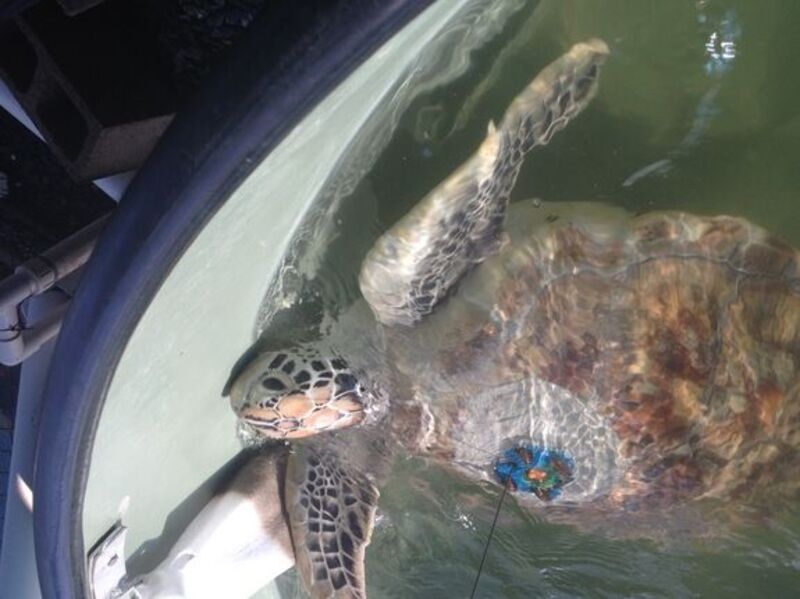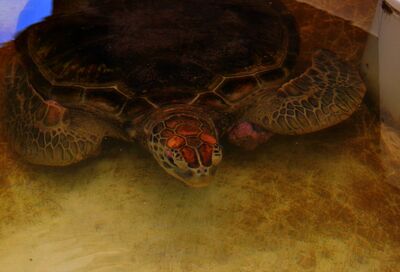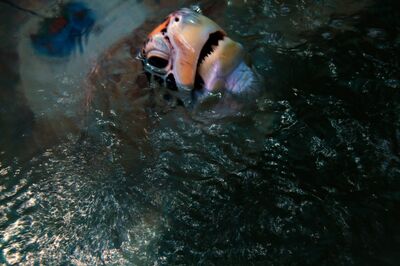Nellie the Turtle back from the brink and out to sea
Nellie the Turtle overcomes disease and is released back into wild by the dedicated team at Cairns Turtle Rehabilitation Centre.

After spending three years in hospital, you would think Nellie the green sea turtle would take off underwater the very second she was released.
But this beautiful creature decided to take her time saying goodbye to her carers at the Cairns Turtle Rehabilitation Centre after hitting the water at Flynn Reef, 60 kilometres east of Cairns last week.
Her carers are encouraged by the results of a vaccine used to treat Nellie, who was suffering from a deadly disease commonly found in sea turtles.
The turtle spent more than three years in care recovering from fibropapillomatosis [FP] which causes turtles to grow benign tumours throughout their body.
CTRC co-founder Jennie Gilbert says while the cause of the virus remains unknown, its impact can be devastating.
“It can be fatal, especially if it develops internally,” Ms Gilbert says.
“They can get tumours on their eyes and it blinds them. It can be a very slow, debilitating way to die.”
CTRC and IDEXX Laboratories developed a vaccine to treat Nellie’s condition and administered it to the sea turtle across five weeks.
Six months later Nellie’s tumours had disappeared but she remained in care for an extended period as a precaution.
The sea turtle’s release was an emotional moment for Nellie’s carers.
“It was brilliant,” Ms Gilbert says. “She went into the water beautifully. Then she hung around for about 15 minutes. Normally, a turtle will just shoot off but Nellie wanted to say goodbye.”
The use of a vaccine will be trialed on other turtles cared for by CTRC.
“It is only a case study,” Ms Gilbert says.
“We don’t definitively know if the vaccine works but it’s encouraging.
“The benefit may be that animals in the future can have tumours taken off and be treated. But there’s a lot of work to be done.”

Nellie is no stranger to CTRC’s carers. The turtle was first taken in near Port Douglas with floaters disease in 2011.
After recovering, she was released a year later with a global positioning system on her shell for research purposes.
“Then we noticed a little while later the tracker wasn’t moving that much,” Ms Gilbert says.
“When we got her [the second time] she was so skinny.”
Ms Gilbert says FP is an issue all over the world.
“It’s a very big issue in Hawaii and Florida in the United States,” she says. We’ve seen cases in Townsville and Moreton Bay as well.”
Nellie is named after far north Queensland wildlife carer Nellie Epong.



